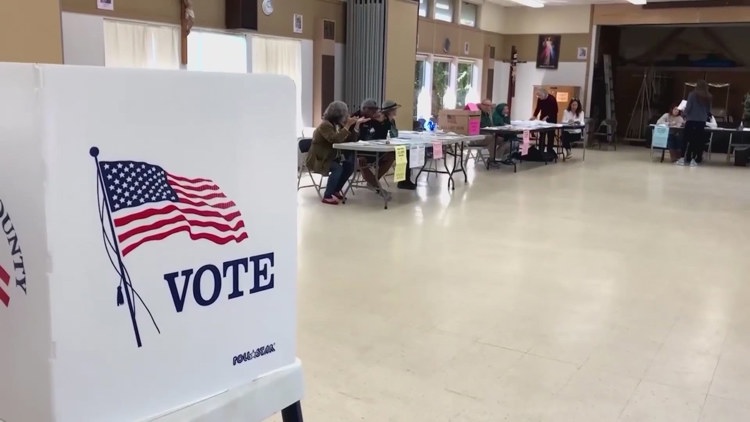Noticed news outlets backing political candidates this election season and feeling confused about how that’s fair and unbiased? Don’t worry, we’re here to clarify.


WASHINGTON — As election season heats up, you might notice that certain media outlets or newspapers come forward to publicly endorse political candidates. It’s a long-standing tradition for some, like The New York Times, while others refuse to take part entirely. But why is this allowed, and what are the rules surrounding these endorsements?
Let's break down the regulations and what these endorsements actually mean.
Media endorsements:
In the United States, the First Amendment protects the freedom of speech and the press, giving media outlets the right to express editorial opinions, including endorsements for political candidates. This freedom allows newspapers and other outlets to weigh in on the issues and candidates they believe best align with their editorial values or best serve the public interest. The key here is that these endorsements are editorial opinions rather than direct campaign contributions or political actions.
Endorsing candidates is especially common among newspapers with opinion sections. By issuing endorsements, they often aim to encourage informed voting by presenting a candidate they believe will best lead on key issues affecting their readers.
Endorsements vs. campaigning:
Endorsing a candidate does not mean the outlet is campaigning for them. News organizations that endorse candidates remain legally obligated to uphold journalistic ethics, aiming to provide fair and unbiased coverage. For example, The New York Times endorsing a candidate doesn’t mean its reporters won’t fairly cover that candidate’s campaign or opposition. This is one of the reasons many organizations have separate editorial boards that handle opinions and endorsements, distinct from their news teams.
In short, a newspaper endorsing a candidate is not equivalent to becoming a mouthpiece for them; the endorsement is merely the organization's opinion, separate from its news reporting.
Rules and regulations:
For most newspapers and media outlets, endorsing candidates doesn’t come with significant restrictions. However, outlets that are part of nonprofit organizations or broadcast on public airwaves face stricter regulations:
Nonprofit news outlets: Nonprofit news organizations with 501(c)(3) tax-exempt status (like NPR) are legally prohibited from endorsing candidates or participating in political campaigning.
Broadcast stations: The Federal Communications Commission (FCC) mandates that broadcast stations offer equal time to political candidates, regardless of endorsements. This ensures fair access for all candidates on the public airwaves.
Transparency in paid endorsements: Media outlets are also required to disclose if any endorsement or editorial opinion is influenced by paid advertising. For instance, if a political campaign buys advertising space, it’s standard practice for the publication to label it as an ad.
Why do outlets endorse candidates?
Newspapers that endorse candidates often do so to highlight the values they consider important in public office, positioning themselves as influencers on civic issues. Endorsements also serve as an extension of a media outlet’s role in society: promoting informed, engaged voters. Outlets consider factors like a candidate’s stance on critical issues, personal integrity, experience, and, in many cases, how their policy goals align with the media organization’s editorial values.
Endorsements are more common at the local and state levels than at the national level, where many major publications shy away from endorsing presidential candidates to avoid alienating their audience.
Despite the tradition, endorsements are not without controversy. Critics argue that endorsements can influence news coverage, potentially leading to biases in reporting. They also worry that endorsements may undermine the perceived impartiality of the press.
Ultimately, endorsements are a way for the media to support an informed and active democracy. They do this while following legal and ethical rules that keep opinion separate from unbiased news reporting.
.png)









 English (US) ·
English (US) ·